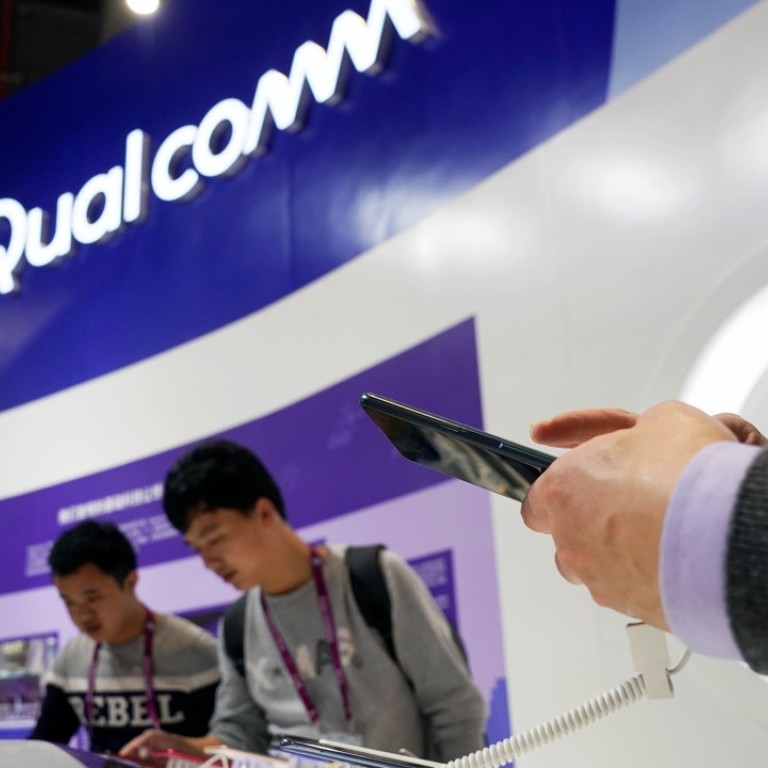
Qualcomm could still consider re-opening NXP bid despite ruling it out, says Taipei-based tech analyst
- NXP is the world’s largest chip supplier to the automotive industry and unlike saturated smartphone markets, autonomous driving is an area of rapid growth
American chip maker Qualcomm could reconsider acquiring rival Dutch semiconductor maker NXP after China said they were open to approving the previously blocked deal at a meeting between the US and China at the G20 summit in Argentina, even though the US company has denied the possibility for now, said a Taipei-based analyst on Monday.
Buying NXP, which specialises in computer chips for carmakers, would enable Qualcomm to diversify growth engines at a time of weak demand for smartphones and lacklustre results, said C.Y. Yao, a Taipei-based senior analyst with research agency TrendForce. The US company is the world’s biggest supplier of mobile chipsets for Android phone brands.
Tesla, Amazon recognised at Wuzhen Internet Conference
“2019 will not be easy for Qualcomm as smartphone sales are expected to be subdued. Restarting the acquisition of NXP will help Qualcomm effectively disperse future operational risks without betting fully on smartphones,” said Yao, adding that he believes the restart of the NXP deal should still be under consideration at Qualcomm despite its assertion the deal had been terminated as the deadline had expired.
Qualcomm on Monday rejected a suggestion by the White House that its collapsed US$44 billion acquisition of Dutch peer NXP Semiconductors could be revived, after the White House said that China was “open to approving the previously unapproved” deal “should it again be presented”.
Qualcomm walked away in July from the proposed acquisition of NXP after failing to secure Chinese regulatory approval, becoming one of the most high-profile victims of the escalating US-China trade war at the time.
NXP, getting past failed Qualcomm deal, sees China as biggest growth market
NXP is the world’s largest chip supplier to the automotive industry and unlike smartphone markets – which have become mostly saturated in the US, China, and western Europe – autonomous driving remains an area of rapid growth with bags of future potential as AI technologies are rolled out.
A recent study by Allied Market Research expects the global market for autonomous vehicles to be worth US$54.23 billion by 2019, increasing to US$556.67 billion by 2026 with a compound annual growth rate of about 40 per cent.
In contrast, global smartphone shipments declined by 6 per cent year-on-year in the third quarter of 2018 as leading vendors, such as Samsung and Apple, and big markets including China, continue to face growth headwinds, IDC said last month.
Huawei Technologies, China’s largest smartphone vendor, has started designing and making mobile chips to use on its Huawei and Honor-branded phones. Xiaomi has also spent billions of yuan developing chip designs for its handsets.
Qualcomm paid NXP a US$2 billion fee to terminate the deal and embarked on a US$30 billion stock repurchase plan to appease disgruntled shareholders after failing to obtain regulatory approval from the Chinese government in July.
Qualcomm drops NXP bid, becoming biggest casualty of trade war
“While we were grateful to learn of President Trump and President Xi’s comments about Qualcomm’s previously proposed acquisition of NXP, the deadline for that transaction has expired, which terminated the contemplated deal,” a Qualcomm spokesperson said in a statement on Monday.
“Qualcomm considers the matter closed and is fully focused on continuing to execute on its 5G road map,” it added.
California-based Qualcomm first offered to buy NXP for about US$38 billion in October 2016 and upped its bid to US$44 billion in February as the original offer faced resistance from some NXP shareholders. The deal eventually failed in July after a regulatory deadline passed without approval from China’s State Administration for Market Regulation (SAMR), which oversees antitrust regulation in the country.
NXP did not immediately respond to an emailed request for comment on Monday.

